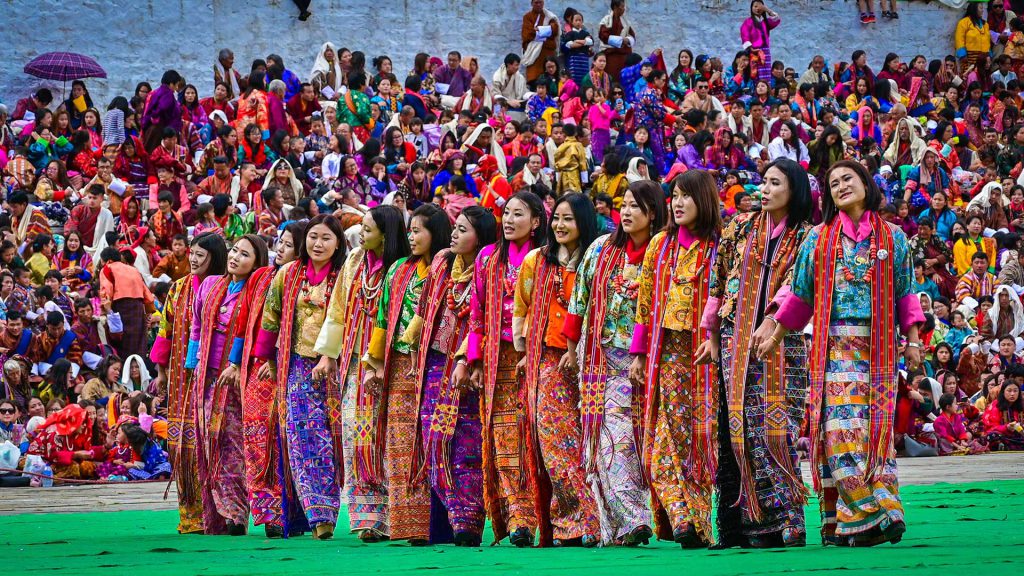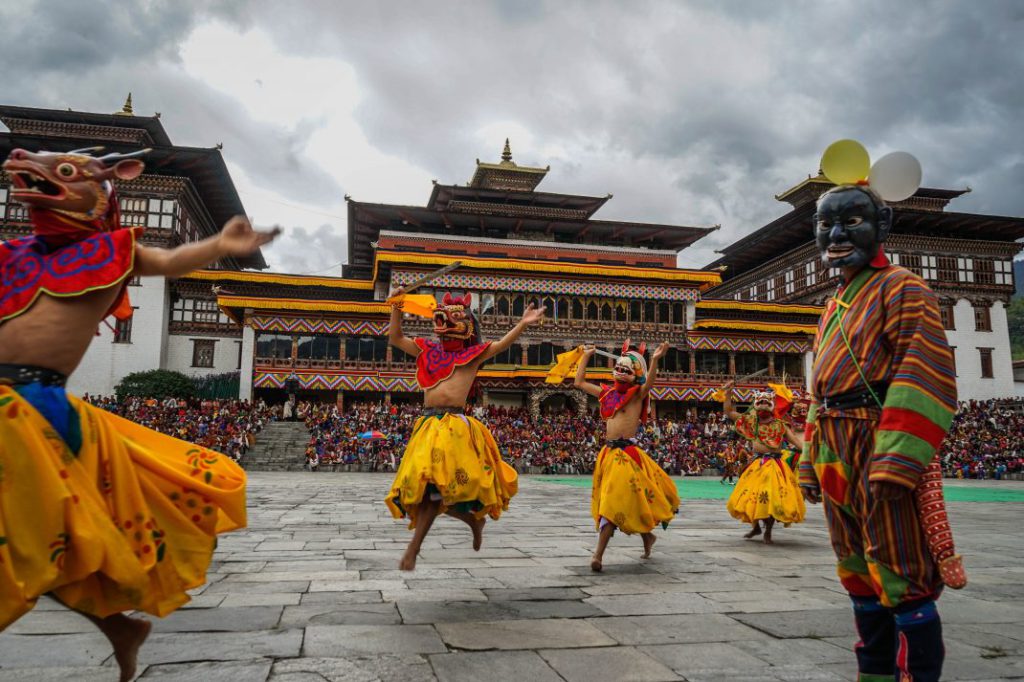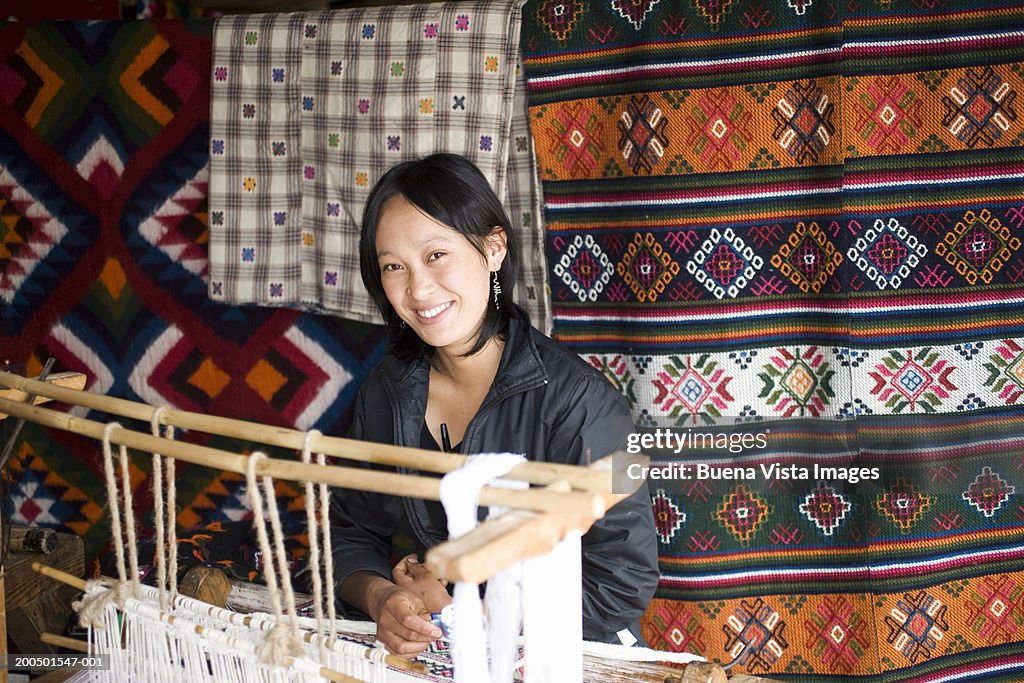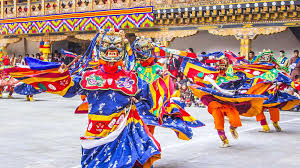Culture
Bhutan, nestled in the Eastern Himalayas, boasts a rich and diverse culture shaped by centuries of isolation and the influence of Buddhism. Despite its small size and relatively low population, Bhutan’s culture is remarkably diverse, reflecting the distinct traditions of its various ethnic groups and regions. Here, we delve into the different facets of Bhutanese culture that contribute to its unique identity.
Religion plays a central role in Bhutanese culture, with Vajrayana Buddhism being the predominant faith. Monasteries, stupas, and prayer flags dot the landscape, serving as reminders of the spiritual heritage deeply ingrained in everyday life. Buddhism not only guides religious practices but also influences art, architecture, and social customs. Monks, revered members of society, are integral to religious ceremonies and often hold significant influence in their communities.
Bhutanese architecture is characterized by its distinctive style, exemplified by dzongs, traditional fortress-monasteries that serve as administrative centers and religious institutions. These imposing structures, adorned with intricate woodwork and colorful paintings, stand as symbols of Bhutan’s cultural and spiritual heritage. Traditional Bhutanese homes, with their sloping roofs and ornate decorations, reflect a deep connection to nature and a reverence for the environment.




The arts flourish in Bhutan, with music, dance, and visual arts playing vital roles in cultural expression. Traditional Bhutanese music, often accompanied by instruments like the drangyen (lute) and dramnyen (fiddle), evokes a sense of nostalgia and spirituality. Bhutanese dance forms, such as the mask dances performed during religious festivals like Tshechus, are vibrant displays of storytelling and devotion. Thangka painting, a traditional form of Buddhist art, is renowned for its intricate detail and spiritual significance, often depicting deities, mandalas, and scenes from Buddhist scriptures.
Festivals, or Tshechus, are integral to Bhutanese culture, celebrated with great fervor and enthusiasm throughout the country. These colorful events bring communities together to honor Guru Rinpoche, the 8th-century Buddhist master credited with introducing Buddhism to Bhutan. Masked dances, religious rituals, and vibrant processions characterize Tshechus, providing an opportunity for both spiritual reflection and social interaction.
Bhutanese cuisine reflects the country’s agrarian roots and reliance on locally sourced ingredients. Staple foods include red rice, buckwheat, and maize, often accompanied by dishes like ema datshi (chili and cheese stew) and momo (dumplings). Food holds symbolic significance in Bhutanese culture, with elaborate rituals surrounding the preparation and consumption of meals. Traditional Bhutanese hospitality ensures that guests are treated with warmth and generosity, with food serving as a means of fostering connections and strengthening bonds within communities.
Bhutan’s cultural landscape is also shaped by its linguistic diversity, with multiple languages spoken throughout the country. Dzongkha, the national language, serves as the primary medium of communication, while regional dialects such as Sharchopkha and Lhotshamkha are spoken in different parts of the country. Language plays a crucial role in preserving cultural heritage and fostering a sense of identity among Bhutanese people.
In addition to its traditional culture, Bhutan embraces modernity while striving to maintain its unique cultural identity. The philosophy of Gross National Happiness (GNH), introduced by the Fourth King, Jigme Singye Wangchuck, prioritizes holistic well-being over material wealth, guiding the country’s development policies and decision-making processes. This commitment to balancing progress with cultural preservation reflects Bhutan’s ongoing efforts to navigate the complexities of globalization while safeguarding its rich cultural heritage.
In conclusion, Bhutan’s culture is a tapestry woven from the threads of tradition, spirituality, and community. From its majestic dzongs to its vibrant festivals and culinary delights, Bhutan’s cultural heritage is a source of pride and inspiration, serving as a testament to the resilience and creativity of its people.
